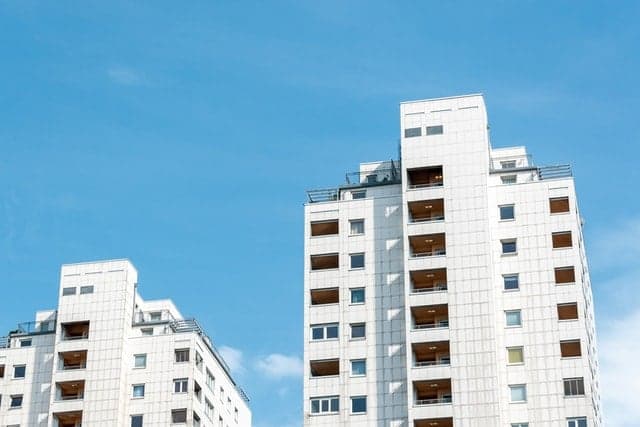Renting in Austria: How much can the landlord ask for as a deposit?

There are a lot of upfront costs when renting in Austria, and one of them is the 'Kaution' or deposit. Even though you should get it back at the end of your tenancy, it's worth making sure you're not being overcharged.
Looking to move? Find your next rental apartment here.
When you rent your Austrian apartment, there are a few costs to expect, including the rent itself, the estate agents' commission or Provision, and the deposit or Kaution. Of these, the deposit is the one that should be returned to you at the end of the tenancy.
The deposit is the fee paid by the tenant to the landlord as security against any damages. This means the landlord can keep it if you fail to pay your rent, or if you cause any damage to the apartment.
There is no law that says a tenant must pay a deposit, and if you do, it needs to be agreed in your rental contract -- legally, the landlord is not able to ask you for a deposit after you’ve signed the contract. But it’s very rare that you won’t be asked for one upfront!
READ ALSO: How much can estate agents charge in commission?
There are legal limits on how much they can ask for, so don’t get ripped off.
The usual deposit is three months’ gross monthly rent.
That means three times the sum of your rent (Gesamtmiete) plus VAT (MwSt in German, 10 percent of the rent) plus operating costs (Betriebskosten). The latter covers things like waste disposal and maintenance of common areas.
Three months’ rent is by far the most common level of deposit you’ll see, but by law, the landlord is allowed to charge up to a maximum of six months’ rent. If you are charged more than three months' rent as a deposit, it's worth asking your landlord why, and seeing if you can negotiate a lower fee. It might help if you have documents to prove you'll be able to pay the rent on time, such as a fixed employment contract or positive references from previous landlords.
READ ALSO: The vocab you need to understand apartment ads
To go higher than six months' rent as a deposit, they need a special reason, for example if there is extremely valuable furniture in the apartment.
Even if your rent is increased during your tenancy, your landlord can’t demand extra money to ‘top up’ the deposit (making it equal to three months' gross rent at the new figure) unless you agree to this in writing.
If you’re moving in somewhere that already has furniture and/or appliances like a washing machine, you may need to pay a one-time fee for these, called the Ablöse, which is not a deposit -- it means that you then own the furniture.
READ ALSO: How to find out if you are paying too much rent in Vienna
Comments
See Also
When you rent your Austrian apartment, there are a few costs to expect, including the rent itself, the estate agents' commission or Provision, and the deposit or Kaution. Of these, the deposit is the one that should be returned to you at the end of the tenancy.
The deposit is the fee paid by the tenant to the landlord as security against any damages. This means the landlord can keep it if you fail to pay your rent, or if you cause any damage to the apartment.
There is no law that says a tenant must pay a deposit, and if you do, it needs to be agreed in your rental contract -- legally, the landlord is not able to ask you for a deposit after you’ve signed the contract. But it’s very rare that you won’t be asked for one upfront!
READ ALSO: How much can estate agents charge in commission?
There are legal limits on how much they can ask for, so don’t get ripped off.
The usual deposit is three months’ gross monthly rent.
That means three times the sum of your rent (Gesamtmiete) plus VAT (MwSt in German, 10 percent of the rent) plus operating costs (Betriebskosten). The latter covers things like waste disposal and maintenance of common areas.
Three months’ rent is by far the most common level of deposit you’ll see, but by law, the landlord is allowed to charge up to a maximum of six months’ rent. If you are charged more than three months' rent as a deposit, it's worth asking your landlord why, and seeing if you can negotiate a lower fee. It might help if you have documents to prove you'll be able to pay the rent on time, such as a fixed employment contract or positive references from previous landlords.
READ ALSO: The vocab you need to understand apartment ads
To go higher than six months' rent as a deposit, they need a special reason, for example if there is extremely valuable furniture in the apartment.
Even if your rent is increased during your tenancy, your landlord can’t demand extra money to ‘top up’ the deposit (making it equal to three months' gross rent at the new figure) unless you agree to this in writing.
If you’re moving in somewhere that already has furniture and/or appliances like a washing machine, you may need to pay a one-time fee for these, called the Ablöse, which is not a deposit -- it means that you then own the furniture.
READ ALSO: How to find out if you are paying too much rent in Vienna
Join the conversation in our comments section below. Share your own views and experience and if you have a question or suggestion for our journalists then email us at [email protected].
Please keep comments civil, constructive and on topic – and make sure to read our terms of use before getting involved.
Please log in here to leave a comment.